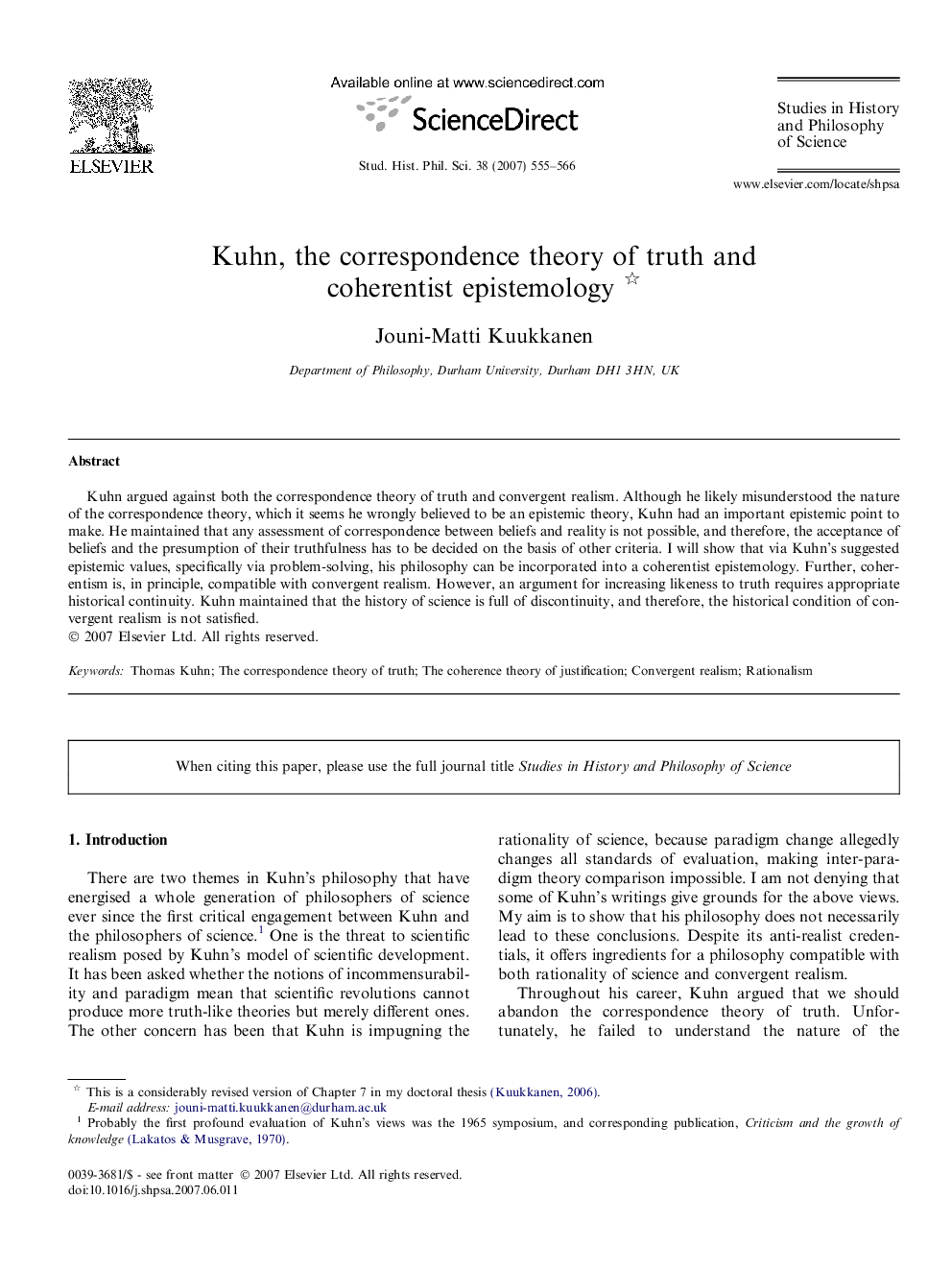| Article ID | Journal | Published Year | Pages | File Type |
|---|---|---|---|---|
| 1160983 | Studies in History and Philosophy of Science Part A | 2007 | 12 Pages |
Kuhn argued against both the correspondence theory of truth and convergent realism. Although he likely misunderstood the nature of the correspondence theory, which it seems he wrongly believed to be an epistemic theory, Kuhn had an important epistemic point to make. He maintained that any assessment of correspondence between beliefs and reality is not possible, and therefore, the acceptance of beliefs and the presumption of their truthfulness has to be decided on the basis of other criteria. I will show that via Kuhn’s suggested epistemic values, specifically via problem-solving, his philosophy can be incorporated into a coherentist epistemology. Further, coherentism is, in principle, compatible with convergent realism. However, an argument for increasing likeness to truth requires appropriate historical continuity. Kuhn maintained that the history of science is full of discontinuity, and therefore, the historical condition of convergent realism is not satisfied.
